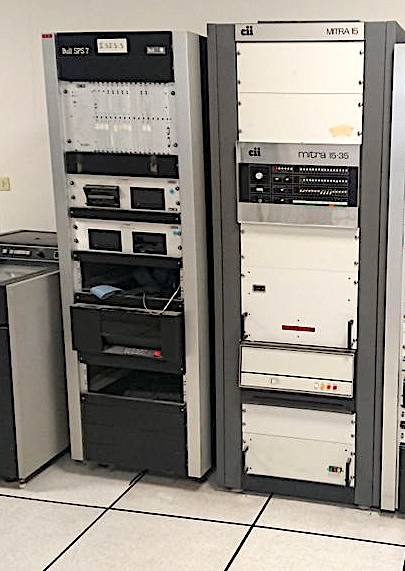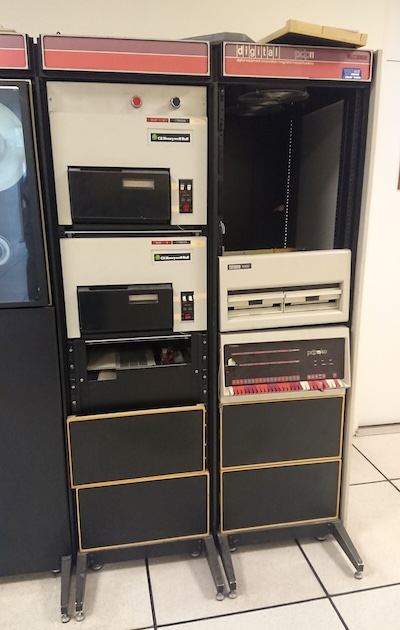Testimonies > Customizable pageInformatic courses at CentraleSupelecFrédéric Boulanger
The CentraleSupélec school of higher education in engineering offers a range of courses: specialised masters, masters of science, research masters, bachelors and soon specialised engineering courses. However, the general engineering programme remains the main course offered by the school. This programme, which has been in place since the start of the 2018 academic year, replaced the general engineering programmes offered by École Centrale Paris and École Supérieure d'Électricité, which merged in 2015 to become CentraleSupélec. The omnipresence of informatics and digital technology in the engineering profession means that we need to consider two aims for the teaching of informatics within this curriculum: on the one hand, ensuring the acquisition of a minimum base of knowledge, as well as the skills required for any engineer, and on the other, offering those who a wish high-level training in different areas of information technology. To achieve this aim, we need to cater for all students, whatever their background, their interest in computing and the specialisation they choose in their third year. In the first year, the entire class (just under 1,000 students) takes part in the same courses, which focus on general concepts rather than on the details of a particular technology. They are based on practical experience in order to develop skills and anchor knowledge that will be useful in working situations. These lessons cover the operation of computer and digital systems, elements of computer security, programming and the use of development tools, as well as an introduction to object-oriented programming, which is a first contact with modelling and software engineering. Students learn to think in algorithmic terms to solve problems. They are also introduced to the formal modelling of problems, the study of their complexity, and their exact or approximate resolution. Finally, a two-week development project enables them to learn how to work in a team and manage collaborative work on an IT project. At the end of this first year, students have the basic knowledge to understand the interest and impact of using digital resources in the other subjects of the curriculum. They also have minimum computing skills they need to apply algorithmic thinking and develop the small computer programmes they will need for their learning. They are also ready to explore the different facets of computing even if they had no particular interest in it prior to admission. A second objective is to enable students to explore or deepen their knowledge of the vast field of computer science in the first and second years through elective courses, thematic sequences (a sequence of courses and a project integrating the skills acquired in these courses), the research pathway (research work supervised by a researcher from one of the school's laboratories), and project centres. The range of courses on offer is extremely varied, covering artificial intelligence, formal verification methods, computing and health, blockchain, quantum computing, the application of computing methods to different industrial problems, etc. The third objective is to offer students who so wish in-depth training in a specific area of computer science. Four majors are offered to third year students within the Computer Science and Digital Engineering major:
Cyber-security,This specialisation trains engineers with an awareness of the security of computer systems through the study of offensive and defensive methods, risk analysis and the protection of data and individuals. Artificial IntelligenceThis specialisation trains engineers capable of mastering the design and development of :
Software sciencesThis course trains engineers capable of mastering the specification, design, verification and maintenance of software systems, through the use of appropriate models (metamodels, grammars, logic) and algorithms for analysing, transforming and generating code from these models.
These four majors are also committed to raising students' awareness of the societal, ethical and environmental issues involved in the design, deployment and use of the systems they design. Their generalist training enables them to train engineers who are able to take into account the various business aspects of a problem, while at the same time having a high level of training in a particular area of IT, so that they can design the cutting-edge IT solutions that industry needs. PhotosThe photo below was taken in 2021 in the Bréguet building at CentraleSupélec. It shows mini-computers from the early 1970s.
On the left, a Bull SPS 7. On the right, a C2I Mitra 15. This latter computer was used in secondary schools (https://fr.wikipedia.org/wiki/Mitra_15#Informatique_exp.C3.A9rimentale_dans_l.27enseignement_secondaire), Another type of machine purchased by the State was the T1600 from Télémécanique (https://fr.wikipedia.org/wiki/T1600). It was for these computers that the French syntax language LSE was developed https://www.epi.asso.fr/revue/54/b54p216.htm
The next photo shows a Digital Equipment Corporation PDP-11 computer, purchased by Supélec on the initiative of Jacques Hebenstreit to evaluate the Unix operating system in the 1970s.
|




